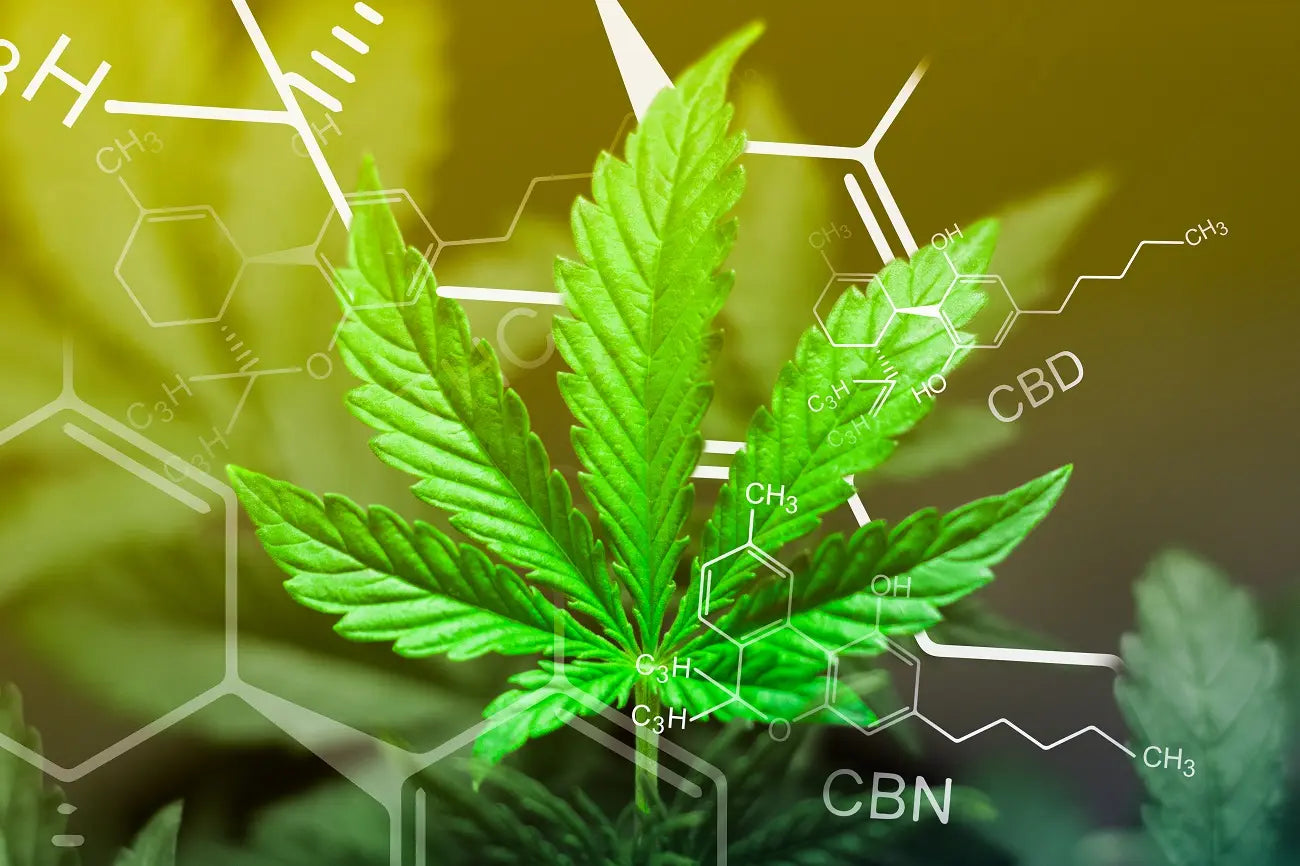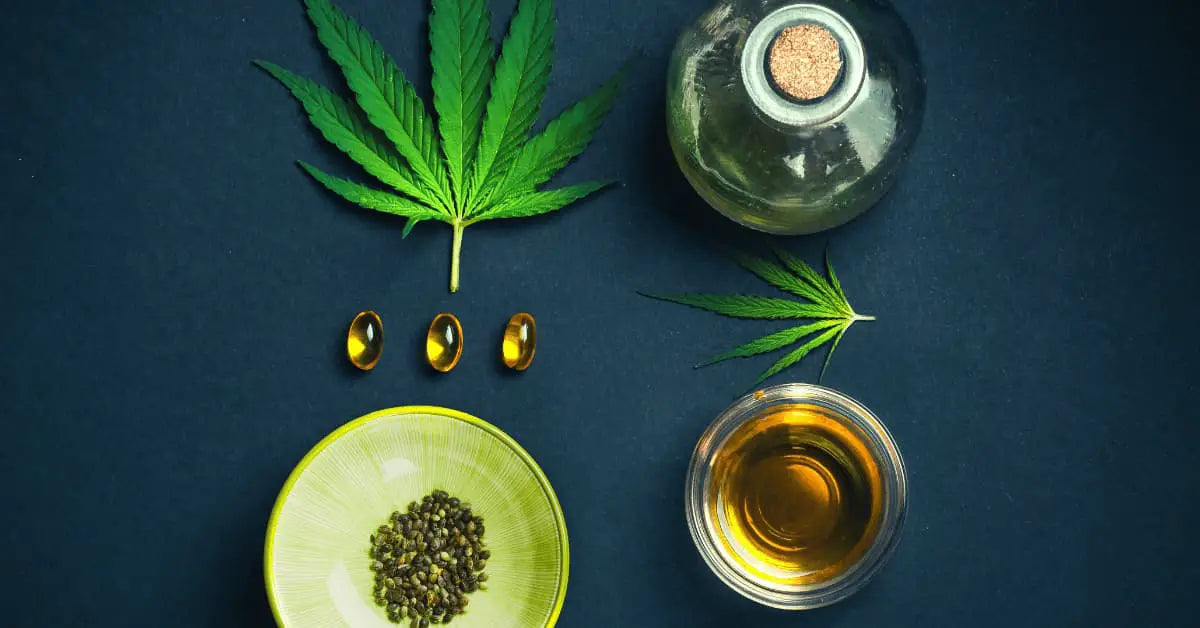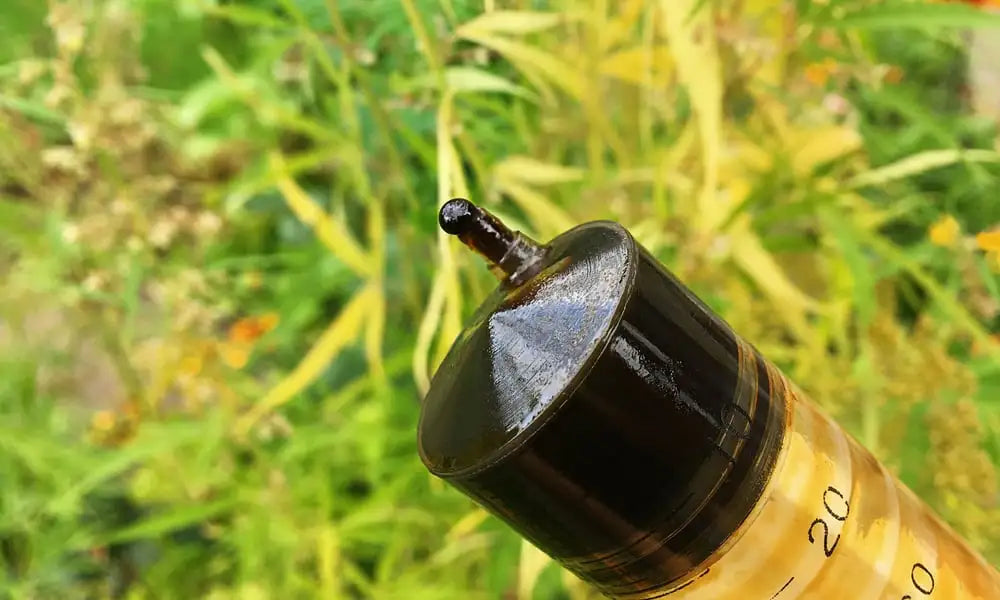
CBN vs. CBD: Understanding the Differences and Which is Right for You
In the ever-expanding world of cannabis and its derivatives, the spotlight has long been on CBD (cannabidiol), known for its wellness benefits and non-psychoactive properties. However, another compound, CBN (cannabinol), is emerging as a potential wellness superstar in its own right. Understanding the differences between CBN and CBD is crucial for anyone looking to explore the therapeutic potential of cannabis-derived compounds.
The Basics of CBN and CBD
To understand CBN and CBD, we must first look at their origins. Both compounds are cannabinoids, chemical constituents found in the cannabis plant. CBD is one of the most abundant cannabinoids in cannabis and is primarily derived from hemp, a cannabis plant variant with low THC levels (the compound responsible for the "high" in marijuana). In contrast, CBN is a byproduct of THC's oxidation process. When THC is exposed to air and light, it breaks down into CBN. This process means that CBN is typically found in older cannabis.
Chemical Structure and Effects
Although CBN and CBD share a similar origin, their chemical structures differ, influencing how they interact with the body's endocannabinoid system (ECS). The ECS plays a crucial role in regulating various physiological processes, including mood, appetite, and pain sensation. CBD interacts with the ECS in a way that does not produce a psychoactive effect, which means it does not cause a high. It is known for its potential to help with tension, depression, chronic pain, and smarting.
CBN, on the other hand, has a mild psychoactive effect. However, it is much less potent than THC. Users often describe the effects of CBN as mildly sedative, making it a subject of interest for those looking to improve sleep quality or manage insomnia.
Potential Therapeutic Benefits
The therapeutic benefits of CBD are more established due to extensive research. CBD has been found to have anti-inflammatory, analgesic, and anti-tension properties. It is also known to help with conditions like epilepsy, as evidenced by the FDA-approved CBD-based drug, Epidiolex, used to treat rare forms of childhood epilepsy.
CBN's therapeutic potential is less researched but growing in interest. Preliminary studies suggest that CBN may have pain-relieving, anti-inflammatory, and anti-bacterial properties. Its most significant potential lies in its sedative effects, which could make it a natural alternative for sleep disorders.
Legal Status and Availability
The legal status of CBN and CBD varies by jurisdiction but is generally tied to the legal status of cannabis. In the United States, for instance, CBD derived from hemp (with less than 0.3% THC) is legal at the federal level, thanks to the 2018 Farm Bill. However, state laws can differ significantly. CBN's legality is less clear, as it originates from THC. In regions where THC is illegal, CBN might also be considered illegal. Before purchasing either compound, it's crucial to check the local laws in your area.
Product Forms and Usage
Both CBN and CBD are available in various forms, including oils, tinctures, capsules, edibles, and topical creams. The choice of product often depends on the desired effect. For instance, CBD oils and tinctures are popular for systemic treatment of conditions like tension and smarting, while topical creams are preferred for localized pain relief. CBN products are less common but growing in availability, especially in products marketed for sleep aid.
Dosage and Side Effects
Determining the right dosage for CBD and CBN can be challenging due to individual differences in how people metabolize cannabinoids. Generally, it's recommended to start with a low dose and gradually increase until the desired effect is achieved. Both compounds are generally well-tolerated, but they can cause side effects in some people. Common side effects of CBD include fatigue, changes in appetite, and diarrhea, while CBN's side effects are less known but may include mild psychoactive effects.
Drug Interactions and Precautions
Both CBD and CBN can interact with other medications. For instance, CBD can inhibit the activity of certain liver enzymes responsible for metabolizing pharmaceutical drugs, potentially leading to altered drug effectiveness or side effects. It's essential to consult with a healthcare provider before using CBD or CBN, especially if you are taking other medications.
Personalized Approach
Choosing between CBN and CBD depends on individual needs and health goals. For those seeking relief from tension, depression, or chronic pain, CBD may be the more suitable choice. Conversely, if the primary concern is improving sleep or a mild sedative effect is desired, CBN might be the better option.
Final Thoughts:
In conclusion, both CBN and CBD offer promising health benefits, but they cater to different needs due to their distinct properties. As research continues to unfold, the full therapeutic potential of these cannabinoids will become clearer. For now, those interested in exploring the benefits of cannabis-derived compounds should do so with an understanding of the differences between CBN and CBD, mindful of legal considerations, and under the guidance of a healthcare professional. The world of cannabinoids is complex and fascinating, offering a myriad of possibilities for health and wellness.
In the realm of cannabinoids, wholesale buyers seeking quality products should consider D Squared WorldWide. This brand stands out in the market for offering a range of premium CBD and CBN products, catering to the diverse needs of consumers. With D Squared WorldWide, wholesalers can confidently provide their customers with high-quality, lab-tested cannabinoid products, ensuring satisfaction for those seeking the therapeutic benefits of CBD and CBN, as outlined in the earlier discussion. Contact Us Now!
Reference:
1. Burstein, S. (2015). Cannabidiol (cbd) and its analogs: a review of their effects on inflammation. Bioorganic & Medicinal Chemistry, 23(7), 1377-1385. https://doi.org/10.1016/j.bmc.2015.01.059


